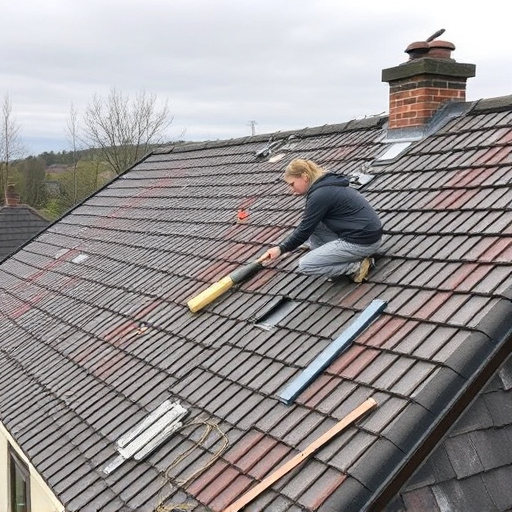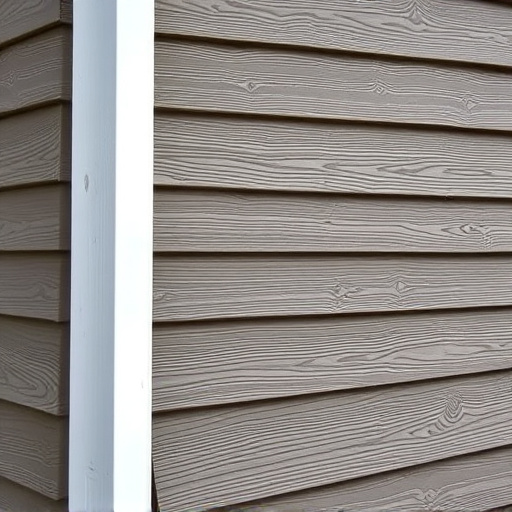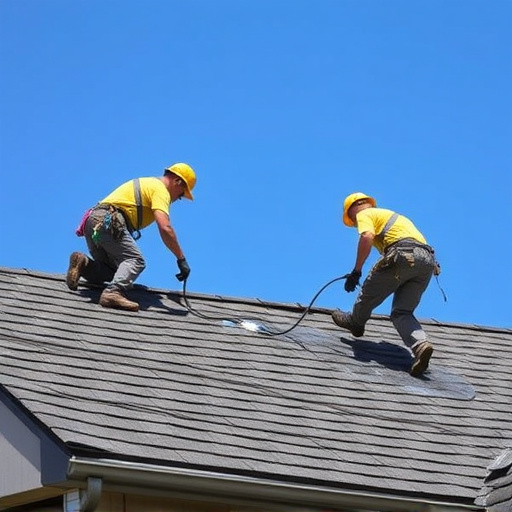Before roof installation, assess weather conditions and long-term forecasts to plan around adverse weather. Halt installation during storms, secure materials, and reschedule if necessary. Collaborate with professionals for safe siding work and effective postponement strategies to minimize delays.
Roof installations can be delicate processes, and unpredictable weather conditions can pose significant challenges. To ensure a smooth project, it’s crucial to Assess weather conditions before beginning any roof installation. This includes monitoring forecasts for storms or extreme temperatures. Implementing safety measures, such as securing equipment and protecting workers, is vital during adverse weather. Additionally, having effective postponement and rescheduling strategies in place minimizes delays and keeps projects on track.
- Assess Weather Conditions Before Installation
- Safety Measures During Stormy Weather
- Postponement & Reschedule Strategies
Assess Weather Conditions Before Installation

Before initiating any roof installation, it’s paramount to assess the current weather conditions. This step is crucial in ensuring a safe and efficient job for both the workers and the property. Heavy rainfall, strong winds, lightning, or freezing temperatures can significantly hinder or even halt the process. Checking long-term forecasts allows you to anticipate potential delays and plan accordingly.
For instance, if adverse weather is expected soon, it might be wise to reschedule the roof installation. This proactive approach prevents risks associated with working in hazardous conditions. Moreover, understanding local climate patterns helps prepare for necessary repairs or adjustments to the home exterior services, such as securing siding and gutters, ensuring they withstand potential storms. Engaging professional siding experts can significantly enhance your property’s protection during and after weather interruptions.
Safety Measures During Stormy Weather

When weather conditions take a turn for the worse during your roof installation project, it’s crucial to prioritize safety first and foremost. Strong winds, heavy rainfall, or even lightning can pose significant risks to both the workers and the property. In such situations, it’s essential to stop the installation process immediately and take appropriate measures. One of the primary concerns is securing the work area by covering exposed materials and ensuring all tools and equipment are safely stored or secured to prevent damage and potential accidents.
A roof consulting expert may recommend postponing the installation until the storm passes, especially for high-wind conditions that could lead to dangerous debris flying around. If a siding repair or replacement is part of the initial plan, it might be more practical to focus on completing those tasks first before addressing the roof installation when the weather permits. The safety and well-being of the team, as well as the integrity of the future roof, should guide these decisions.
Postponement & Reschedule Strategies

When weather interruptions arise during roof installation, having a solid postponement and rescheduling strategy is essential for both homeowners and professional contractors. If strong winds, heavy rain, or snow are forecasted, it’s crucial to call off the installation for safety reasons. Delayed progress can be frustrating, but well-prepared contractors often have backup plans in place to minimize disruptions.
Flexibility is key when managing a roof installation project. Contractors may offer options like rescheduling quickly to avoid lengthy delays or suggest partial installation if conditions permit, focusing on sections less impacted by the weather. Efficient communication between the homeowner and contractor ensures everyone is aligned, allowing for swift decisions to get the job back on track while considering the best interests of both parties and ensuring the quality of the final residential siding services or professional siding work.
When handling weather interruptions during roof installation, assessing conditions beforehand and implementing safety measures are paramount. Knowing when to postpone and reschedule is crucial for both project completion and worker safety. By adhering to these strategies, you can navigate weather-related challenges effectively, ensuring a successful roof installation every time.














